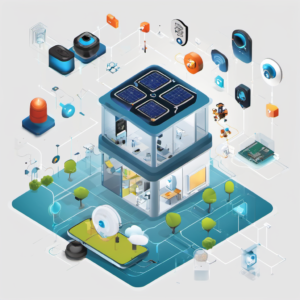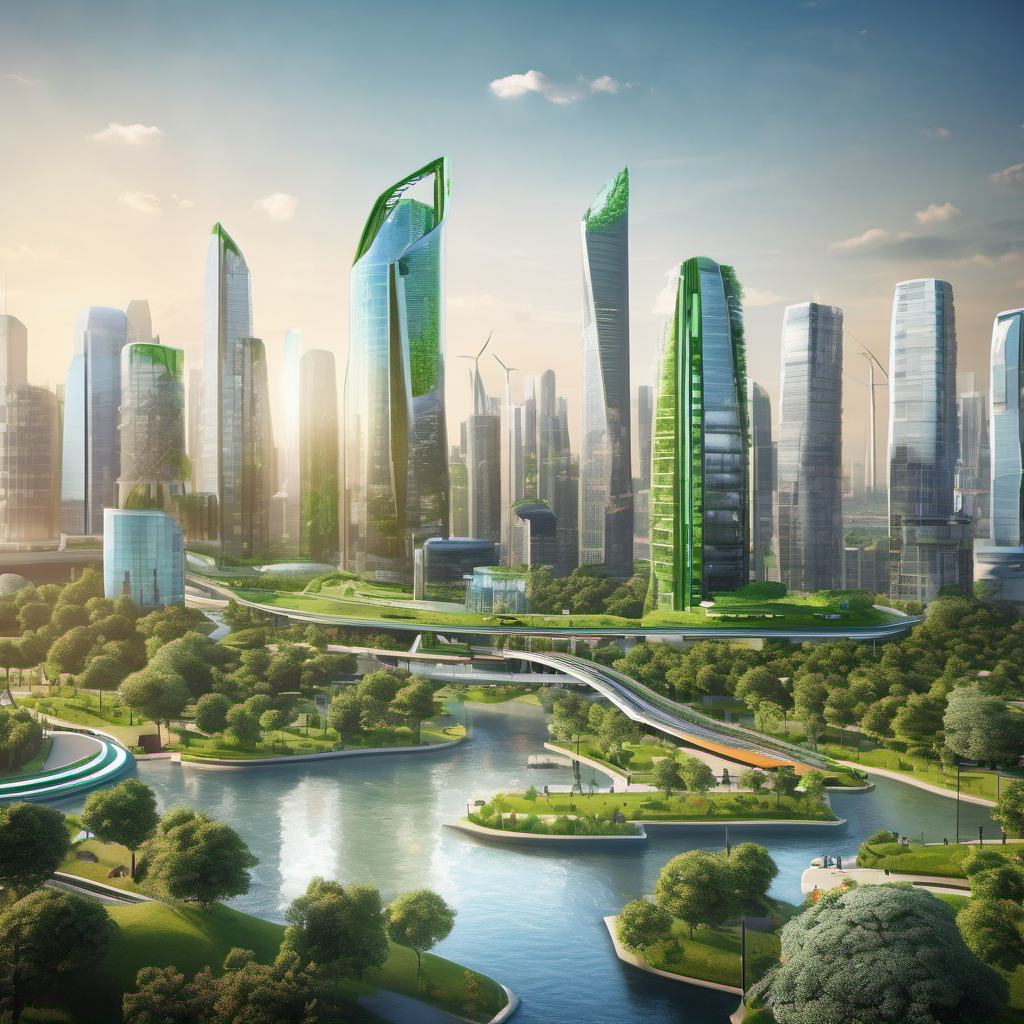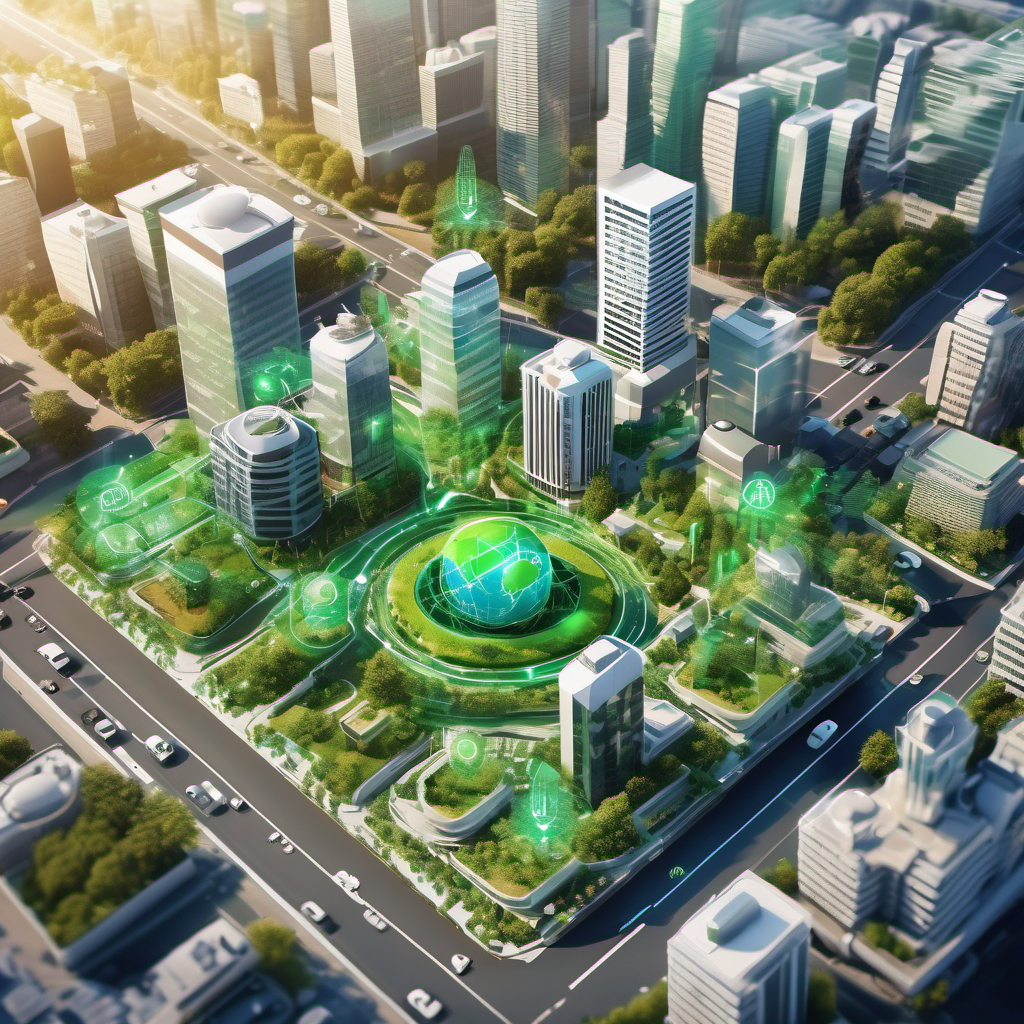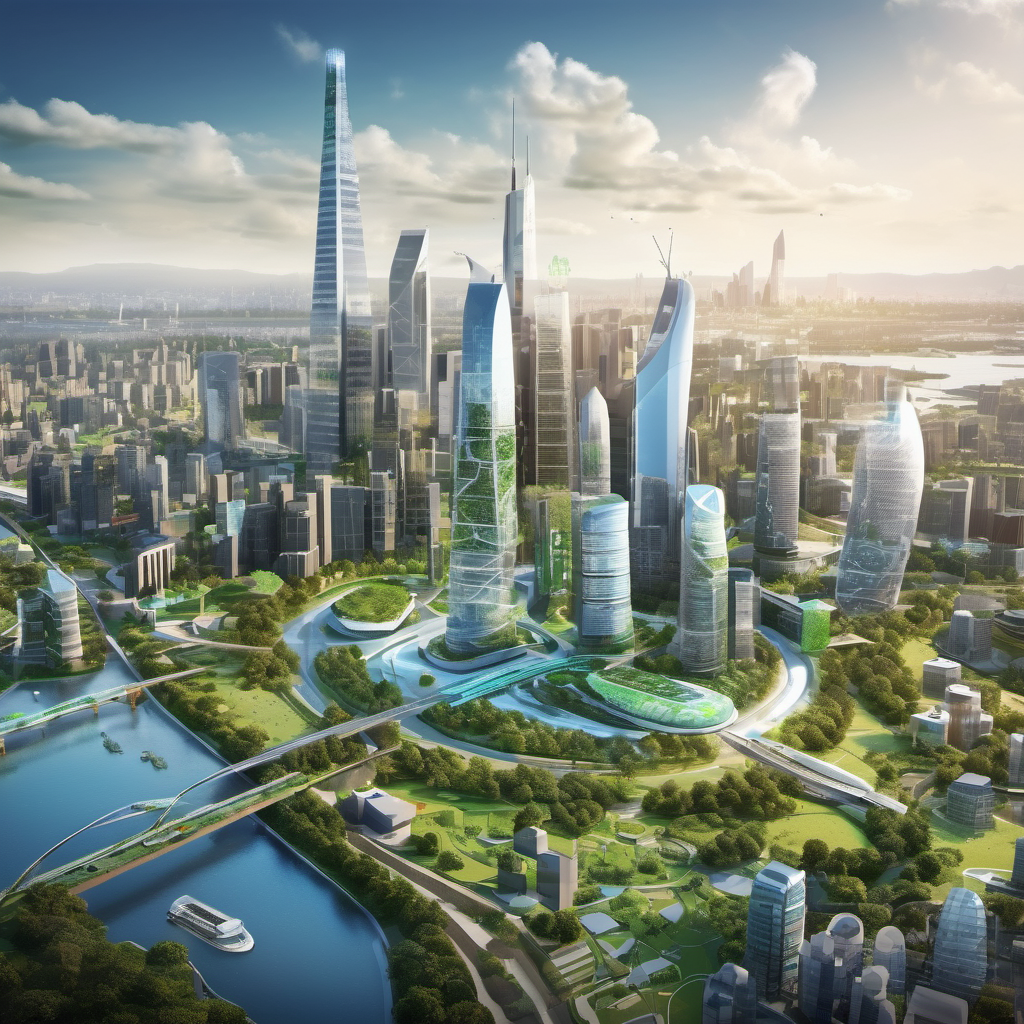In today’s rapidly evolving technological landscape, the fusion of hardware development, intelligent products, and sustainable urban development has become a cornerstone of innovation.
From smart homes to interconnected cityscapes, the integration of cutting-edge hardware with advanced IoT systems revolutionized the way we interact with our environment, paving the way for more sustainable and livable communities.
In this blog post, we’ll delve into the hardware development as it pertains to intelligent products, while also exploring how these innovations contribute to the creation of smart cities and urban infrastructure that prioritize sustainability and environmental stewardship.
Sustainable Innovations
Sustainable innovation refers to the development and implementation of new ideas, products, or processes that promote environmental, social, and economic sustainability. It involves creating solutions that meet current needs without compromising the ability of future generations to meet their own needs.
It has various approaches, for example
- renewable energy technologies,
- eco-friendly materials,
- circular economy practices, and
- inclusive business models,
all aimed at fostering long-term environmental stewardship and societal well-being.
The Evolution of Intelligent Products
The concept of intelligent products encompasses a wide array of innovations designed to enhance
- efficiency,
- convenience, and
- functionality in various aspects of our lives.
At the heart of these advancements lies hardware development – the process of designing, prototyping, and manufacturing the physical components that power these intelligent systems.
Harnessing the Power of IoT and Internet System Construction
At the core of intelligent products is the Internet of Things (IoT), a network of interconnected devices that communicate and share data seamlessly.
A great command of IoT and internet system construction is essential for creating robust, scalable solutions that can adapt to the evolving needs of users.
Whether it’s
- designing sensors that collect environmental data or

- developing cloud-based platforms for data analysis,
expertise in IoT is key to unlocking the full potential of intelligent products.
Hands-On Experience with Smart Products
One of the most exciting aspects of working in hardware development for intelligent products is the opportunity for hands-on experimentation and innovation.
Whether it’s
- tinkering with smart home devices,
- optimizing workplace air treatment systems, or
- conducting space analysis for improved efficiency,
the ability to translate theoretical knowledge into real-world solutions is invaluable.
By gaining firsthand experience with smart products, developers can refine their skills, identify areas for improvement, and drive future innovation in the field.
The Promise of Smart Cities
Smart cities are emerging as hubs of innovation,

leveraging technology to enhance
- efficiency,
- connectivity, and
- quality of life for residents.
From efficient transportation systems to renewable energy initiatives, these cities embrace a holistic approach to urban development, with sustainability at the forefront.
Empowering Communities Through Innovation
Sustainable development in smart cities extends beyond infrastructure to encompass community engagement and empowerment.
By fostering a culture of innovation and collaboration, cities can tap into the collective wisdom of their residents to address local challenges and co-create sustainable solutions.
Citizen-centric initiatives, such as
- participatory budgeting and
- crowdsourced urban planning projects,
empower individuals to take an active role in shaping their environment and fostering a sense of ownership and stewardship.
Case Study: The Role of Intelligent Products in Urban Sustainability
Considering the implementation of intelligent waste management systems in a smart city sounds like a good idea.
By deploying smart bins equipped with sensors and IoT connectivity, municipal authorities can optimize
- waste collection routes,
- reduce fuel consumption, and
- minimize greenhouse gas emissions.
Furthermore, real-time monitoring enables
- early detection of
- waste leaks or overflowing bins,
preventing environmental contamination and enhancing public health and safety.
Pioneering into the Sustainable Future
The Evolution of Intelligent Products and Urban Development
The concept of intelligent products encompasses a wide array of innovations designed to enhance efficiency, convenience, and functionality in various aspects of our lives.
From thermostats that learn our preferences to smart security systems that protect our homes, these technologies are reshaping the way we inhabit urban spaces.
Leveraging the Power of IoT in Smart Cities
Smart cities represent the pinnacle of urban development, leveraging technology to create more efficient, connected, and sustainable communities.
At the core of these cities is the Internet of Things (IoT), a network of interconnected devices that communicate and share data seamlessly. With a great command of IoT and internet system construction, cities can create robust, scalable solutions that
- optimize resource utilization,
- reduce environmental impact, and
- enhance quality of life for residents.
Integrating sustainable development
At the heart of sustainable urban development lies the concept of balancing economic growth with environmental conservation and social equity.
Intelligent products, with their ability to
- collect,
- analyze, and
- act upon data in real-time, are instrumental in achieving this balance.
For instance, smart sensors can
- monitor air and water quality,
- enabling proactive measures to mitigate pollution and
- protect natural resources.
Similarly, IoT-enabled infrastructure can

communicate and share data seamlessly with smart cities
- optimize energy consumption,
- reducing carbon emissions and
- promoting renewable energy adoption.
Conclusion
In summary, the integration of hardware development, intelligent products, and sustainable development offers a path toward a more eco-friendly and connected future.
By leveraging intelligent technologies, cities can optimize resources, reduce environmental impact, and empower communities.
Let’s envision a world where innovation and sustainability intersect to create thriving, resilient cities for all.
